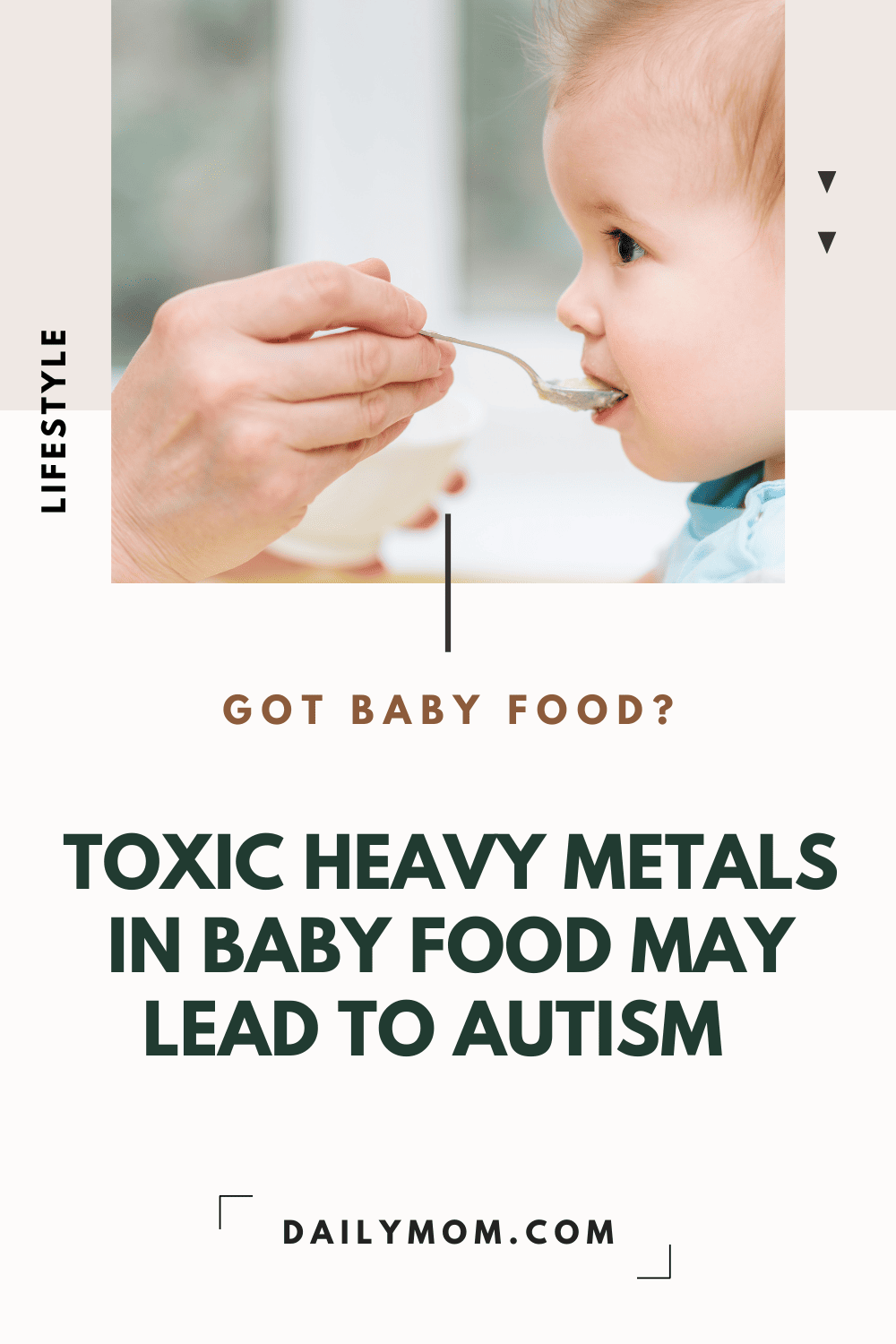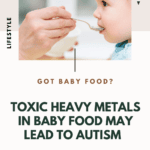In early February 2021, a congressional study brought to light disturbing facts regarding the contents of commercially-available baby food that affect babies and young children. Heavy metals in baby food – after analyzing products from several popular US brands, the results indicated the presence of excessive amounts of cadmium, arsenic, mercury, and lead.
Heavy metals in baby food naturally occur in water and soil. Calcium, magnesium, and iron are helpful and favor good development in appropriate amounts. On the other hand, toxic heavy metals have no safe exposure level, even in minute quantities. Their presence in infant nutrition products is a cause for concern, considering the high correlation with neurodevelopmental conditions like ADHD and autism.
Are Toxic Heavy Metals Connected to Autism?
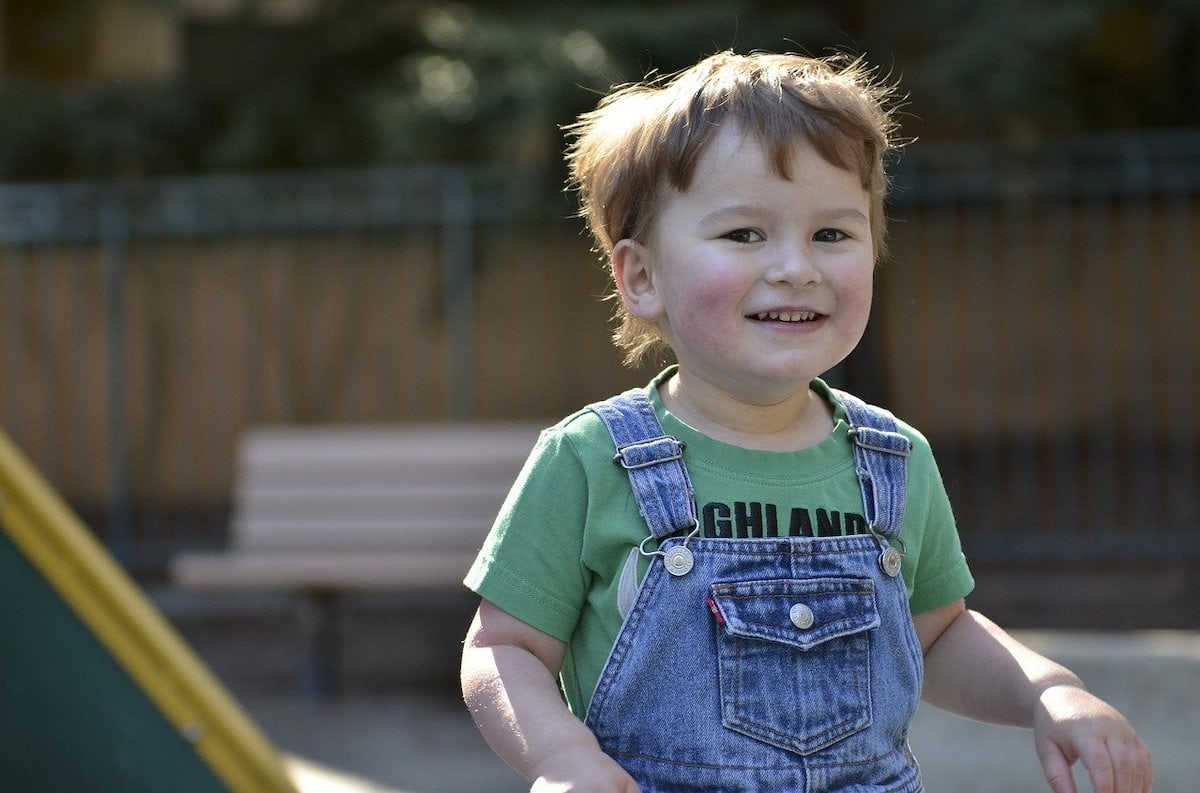
Read More: What is ABA Therapy and How is it Used to Treat Autism?
The precise mechanisms that lead to the onset of autism aren’t entirely clear. Specialists consider that both genetic and environmental factors, like heavy metals in baby food, play a role. Even though research is still ongoing, ample evidence indicates a strong association between exposure to heavy metals and the increasing incidence of autism spectrum disorders in US children (1 in 44).
Research on twins noted that children with autism have significantly higher lead concentrations in their teeth. Another study found that they store more elevated amounts of lead and arsenic in their hair and can suffer calcium deficiencies. Further investigation also illustrated that children on the spectrum likewise displayed higher levels of mercury and arsenic in their blood which means they may have been exposed to high heavy metals in baby food.
Infants and toddlers are exposed to such harmful elements when they ingest tainted baby food. Children under 36 months have a higher uptake of nutrients in their gut. When cadmium, arsenic, mercury, and lead are absorbed, they accumulate in organs and tissues. Since their underdeveloped detoxification system, infants can’t excrete dangerous elements efficiently, increasing their vulnerability. These stored toxic heavy metals reach the brain and nervous system and act as neurotoxins, gradually impairing functionality.
Even if a causal link cannot be definitively established, the vast amount of available data implies that heavy metals are a potential contributing factor to the development of autism. Considering this connection, the high amounts of toxic heavy metals found in baby food are an apparent reason for concern.
How To Keep Baby Food Safe from Heavy Metals
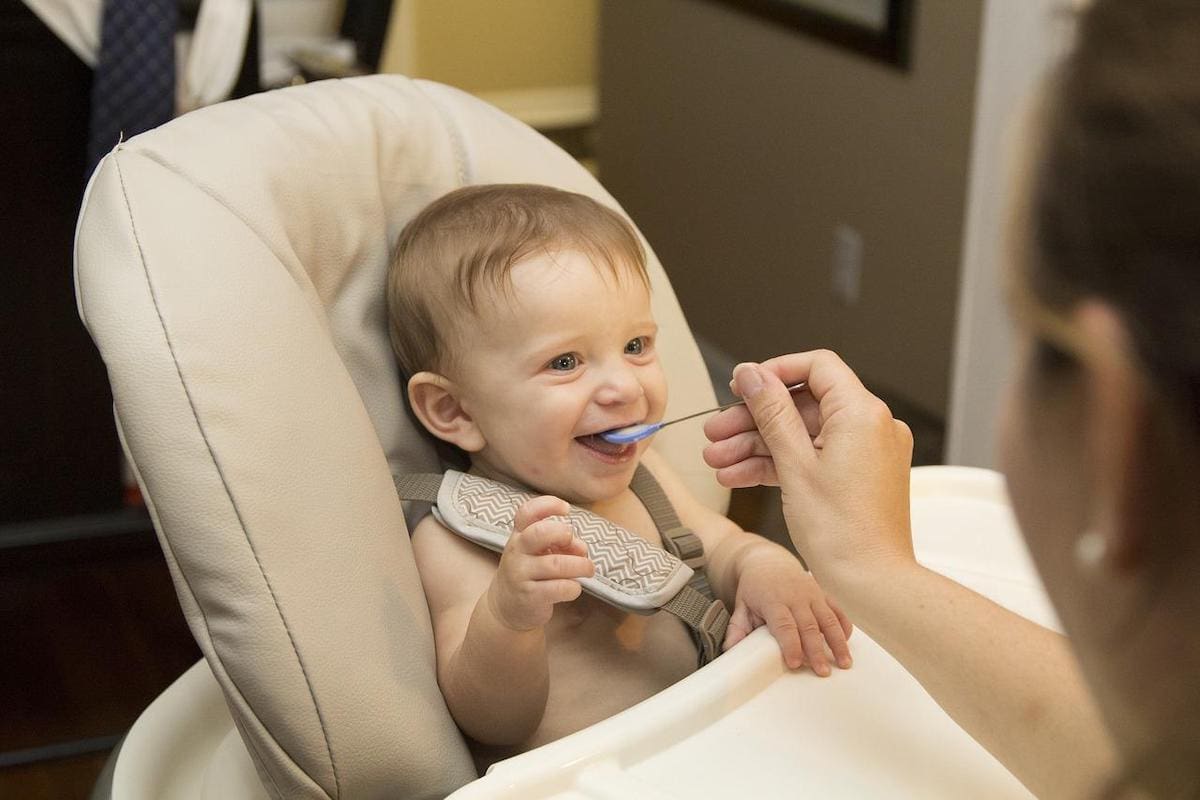
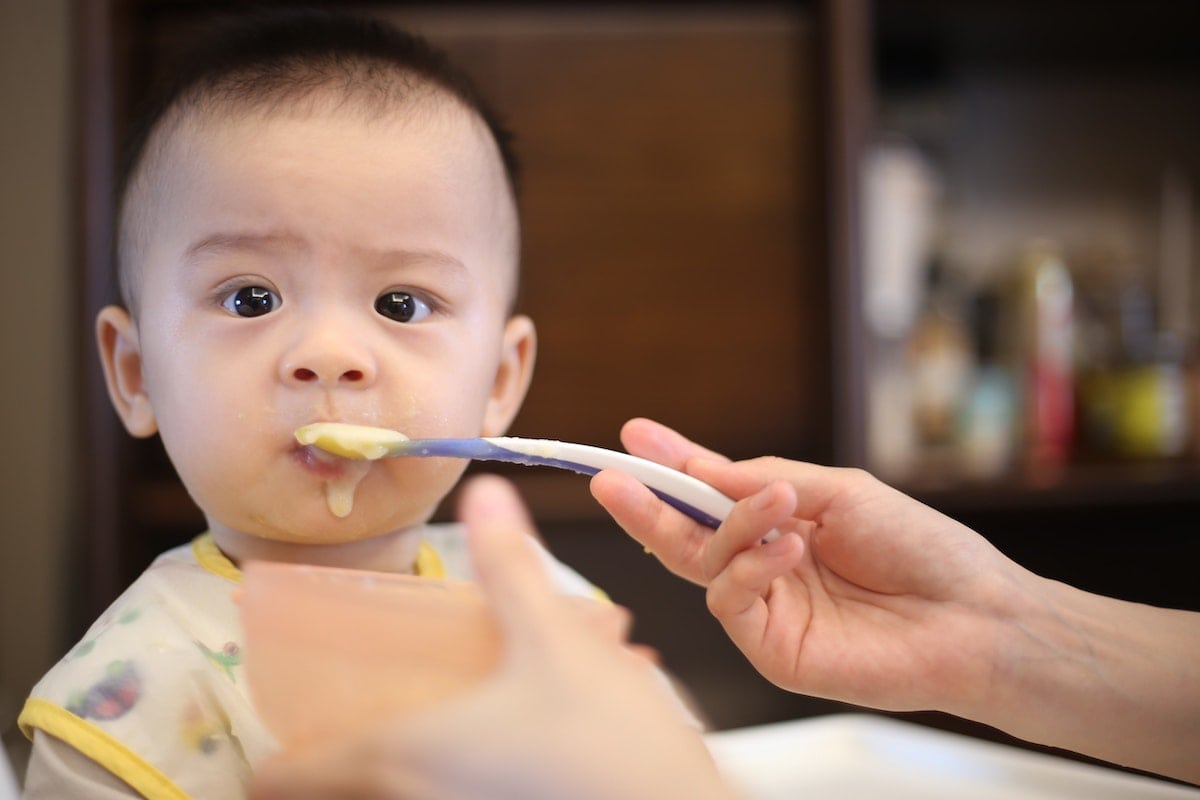
While trace amounts of these naturally occurring heavy metals are to be expected, it’s still the responsibility of baby food manufacturers to ensure the quality of their products. Given the industry’s tepid response to the congressional report results, it is no surprise that companies are in no hurry to adopt efficient measures.
Legislation is currently being discussed and pending in the Senate. However, the slow progress isn’t encouraging, leaving parents justifiably worried and considering safe alternatives. Fortunately, parents can use several easy methods to reduce the amounts of heavy metals in baby food.
Breastfeeding Is Essential
The American Association of Pediatrics recommends six months up to a year of breastfeeding to ensure a newborn’s proper development. Mother’s milk is full of crucial nutrients like proteins, fats, and sugars. The antibodies it supplies help the growing immune system, and its probiotic properties support intestinal health.
Read More: 7 Ways To Handle Breastfeeding Challenges
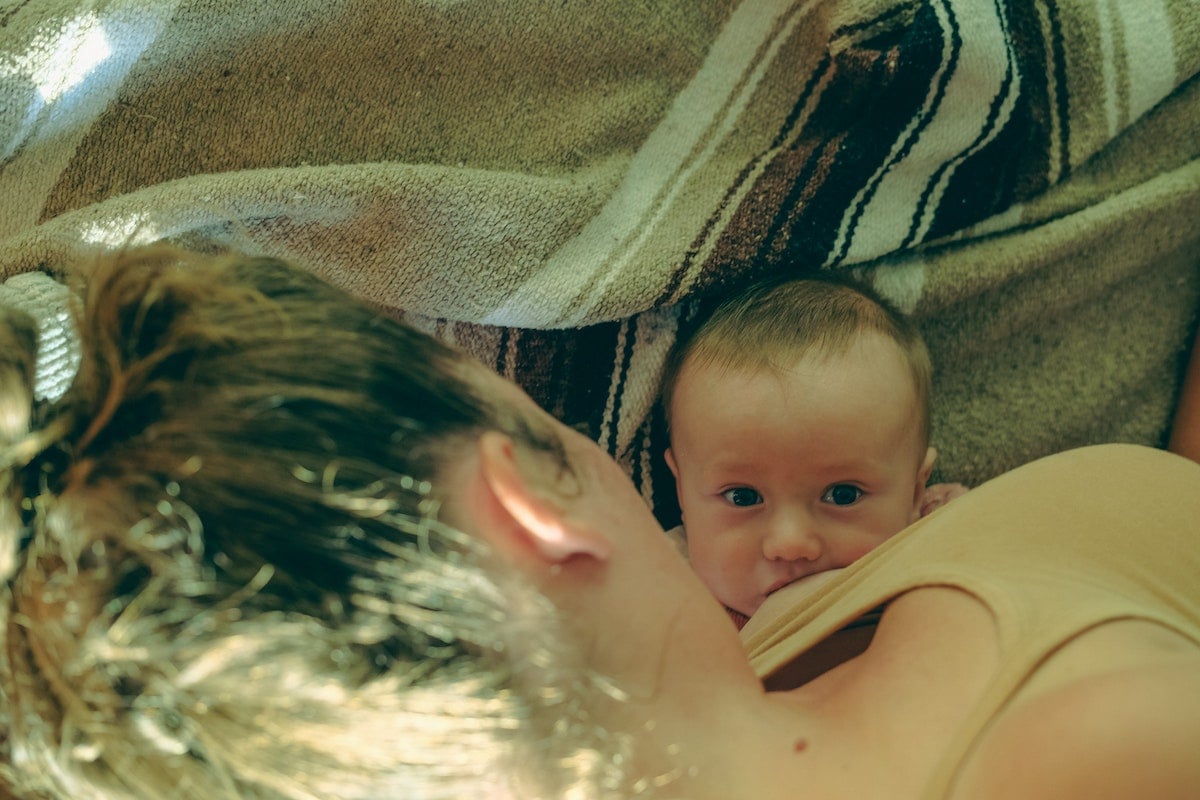
Breastfed infants have a significantly lower rate of chronic diseases like allergies or asthma and are less affected by obesity. The comprehensive blend of enzymes, antioxidants, and vitamins stave off infections and keep exposure to harmful heavy metals to a minimum.
Better Fish Choices
When it’s time to transition to solid foods, fish is one of the best nutritional options, providing omega fatty acids, lean protein, vitamin D, and essential minerals. However, it’s crucial to know that some species of mainly predatory fish contain higher mercury concentrations, making them less safe choices.
Examples of fish that parents should avoid feeding their infants include:
- Big-Eyed Tuna
- King Mackerel
- Shark
- Swordfish
- Marlin
- Ahi
- Tilefish
- Orange Roughy
Not all fish and seafood contain high amounts of heavy metals, and a few healthier options that parents should consider are:
- Salmon
- Tilapia
- Canned light tuna
- Sardines
- Anchovy
- Herring
- Shrimp
- Lobster
- Scallops
- Crawfish
Which baby food has heavy metals? Cut Rice and Rice-Derived Products
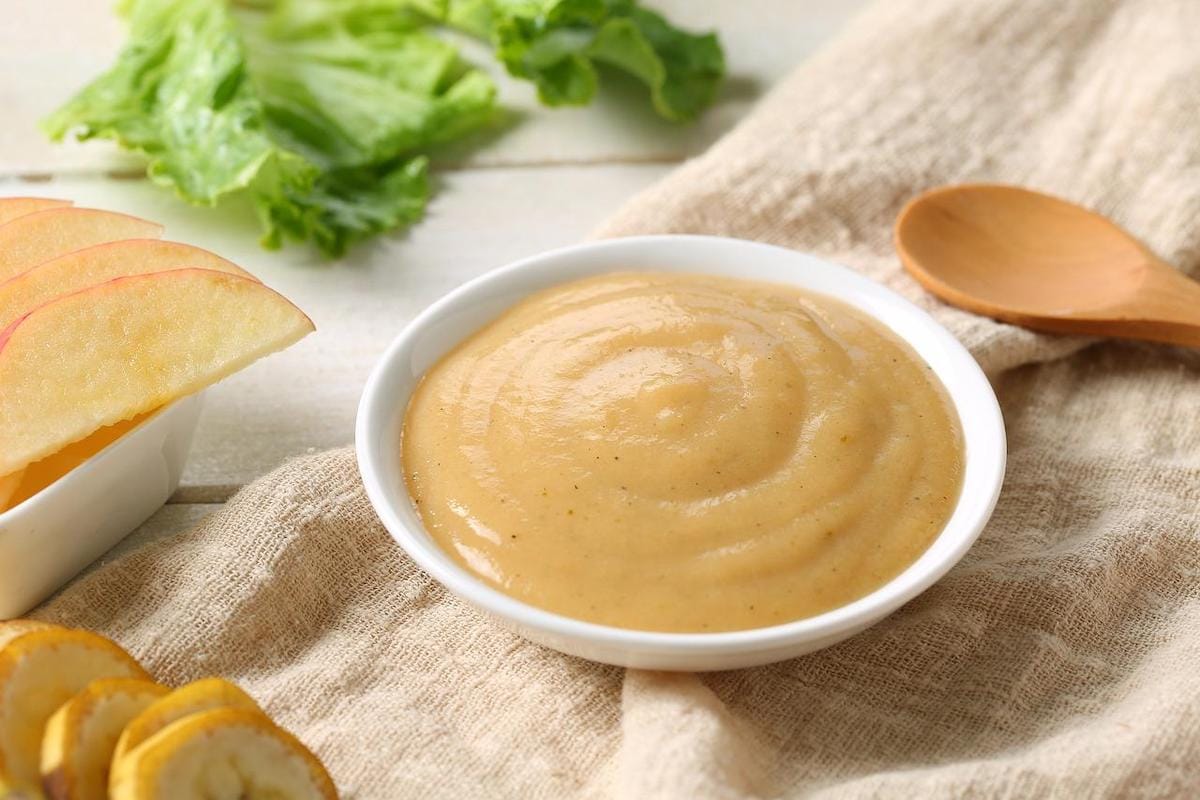
Rice is a notoriously absorbent crop that contains elevated amounts of arsenic. Despite its status as a staple in infant nutrition, it takes up to 20 times more arsenic from its environment than other crops. Notably, these high amounts prompted regulative action. The level of inorganic arsenic in rice-based infant cereal is the only limit on any heavy metals in baby food currently set for baby food products.
Basmati and sushi rice are considered safer alternatives, but using this ingredient sparingly maintains exposure to arsenic low overall. Replacements with similar consistency and better nutritional benefits include oats, rye, barley, wheat, maize, soy, sorghum, or quinoa. Overall, should I be concerned about heavy metals in baby food? Short answer, yes.
Read More: Baby Food Ingredients Explained
Replace Unsafe Products with Healthier Alternatives
The Healthy Babies Bright Futures 2019 report was instrumental in raising awareness about the prevalence of toxic heavy metals in baby food. Besides the eye-opening figures it provided, there are several recommendations that the authors endorse:
- Teething biscuits can be replaced with frozen or chilled fruit and vegetables
- Rice-free snacks and multi-grain cereals drastically reduce exposure to arsenic
- Sweet potatoes and carrots have an increased uptake of toxic metals; various vegetable choices limit exposure and provide more nutritional benefits.
- Apple, pear, and grape juices can show traces of arsenic and lead. Water is always safer.
- “Organic” products are grown in the same soil with the same water, so it doesn’t necessarily mean “heavy metal-free,” too.
Keeping track of all the potential dangers lurking in items generally considered safe by design can be tiresome. Fortunately, parents now can request safer baby food options from ethical suppliers through the Toxic Baby Food Replacement Initiative to avoid heavy metals in baby food. After filling out the form that is at the end of the page, parents will be contacted and provided with various safe alternatives.
About the Author: Jonathan Sharp is the Chief Finance Officer at Environmental Litigation Group, PC, a law firm specializing in toxic exposure established in Birmingham, Alabama.
WANT TO READ MORE?
Want to try something different? Then read about the First Foods You SHOULD Be Feeding Your Baby.
CONNECT WITH DAILY MOM
💖 NEWSLETTER: DAILY READS IN YOUR INBOX 💖
Sign up to receive our picks for the best things to do, see and buy so you can relax and focus on more important tasks! Let us help you be the best version of yourself you can be!
BE SOCIAL WITH US
📌 LOVE IT? PIN IT!📌
